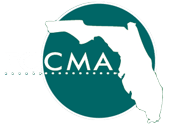Many of our communities continue to recover from Hurricane Irma and may be doing so for quite a while. As we go through this process, one thought constant on our minds is, “will FEMA reimburse us for this?” No one recovery is the same, especially when debris haulers are stretched so thin and jurisdictions are working hard to make sure they perform their contractual obligations. As these and other issues continue to be thrown at you, FEMA has provided a simple list of items to be aware of as you augment your recovery with contracted assistance. For a more detailed understanding of Public Assistance, this link will take you to the current, most comprehensive guide on the subject published by FEMA. These guides change periodically so make sure and check the FEMA website for updated versions from time to time. https://www.fema.gov/media-library-data/1496435662672-d79ba9e1edb16e60b51634af00f490ae/2017_PAPPG_2.0_508_FINAL(2).pdf
- Engaging in a noncompetitive procurement (i.e., sole-sourcing) without carefully documenting how the situation has created an urgent need to perform the work sooner than a competitive procurement process would allow.
- Continuing work under a sole-source contract after the urgent need (see #1) has ended, instead of transitioning to a competitively procured contract.
- Piggybacking onto another jurisdiction’s contract in a situation that doesn’t allow noncompetitive procurement (see #1) or where the other contract is materially different in terms of scope or requirements. Piggybacking is rarely allowable.
- Awarding a “time-and-material” contract without a ceiling price that the contractor exceeds at its own risk and documenting why no other contract type is suitable.
- Awarding a “cost-plus-percentage-of-cost” or “percentage-of-construction-cost” contract.
- Not including the required contract clauses (available online at the below website under “PDAT Resources” menu).
- Including a geographic preference in a solicitation (i.e., giving an advantage to local firms).
- Not making and documenting efforts to solicit small businesses, minority businesses, and woman’s business enterprises.
- Conducting a procurement exceeding $150,000 without conducting a detailed cost or price analysis.
- Not carefully documenting all steps of a procurement to create a record if questions arise potentially years later.
For further information on FEMA grant procurement requirements, including contract review checklists, detailed guidance on the above topics, and online webinar training classes, please visit https://www.fema.gov/procurement-disaster-assistance-team.





